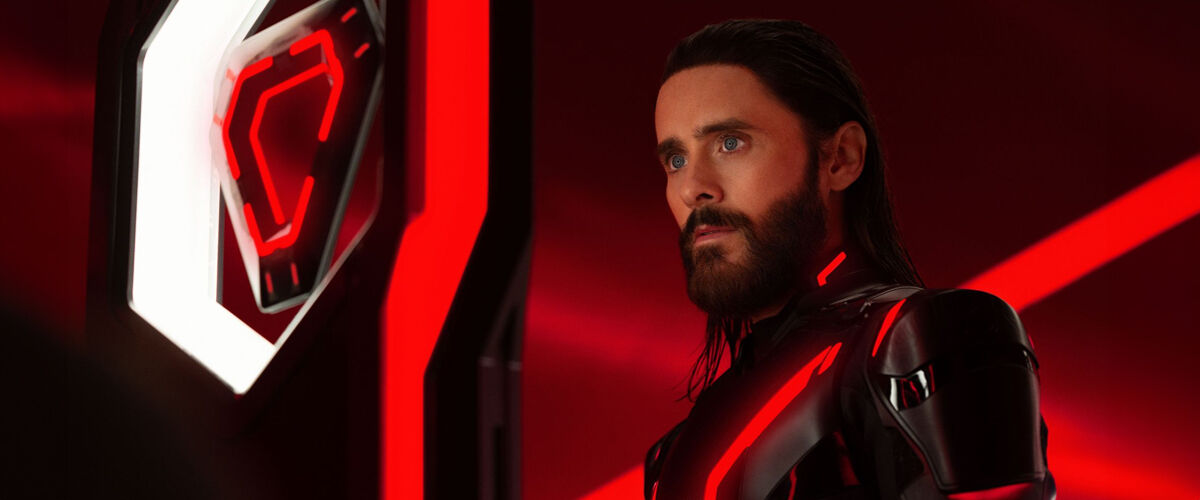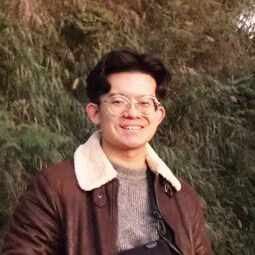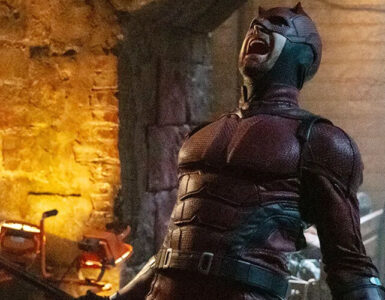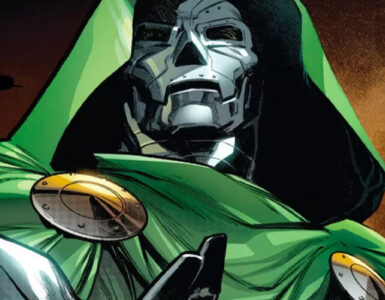For years, the Tron franchise has existed in a strange liminal space as half-cult classic, half-Hollywood curiosity. After Steven Lisberger’s pioneering 1982 original film and Joseph Kosinski’s neon-drenched 2010 sequel Tron: Legacy, fans have been left waiting for over a decade for Disney to commit to a third chapter. Like a hidden surprise uncovered in a video game, the upcoming Tron: Ares is just on the horizon, but along with the nostalgia also comes questions as to what happened to Kosinski’s planned but ultimately unmade sequel, Tron: Ascension.
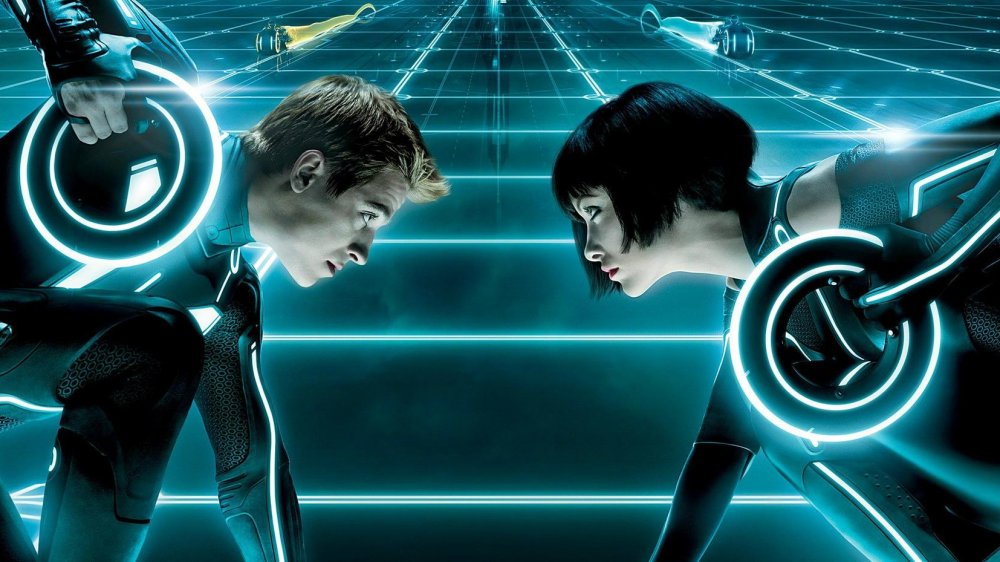
When Disney unveiled the Tron: Ares trailer earlier this year, fans of the Grid were split. The visuals impressed, but the absence of familiar characters like Garrett Hedlund’s (Mudbound) Sam Flynn and Olivia Wilde’s (Don’t Worry Darling) Quorra was conspicuous. For those who had tracked Ascension’s development, the new film felt less like a continuation of Legacy and more like a soft reboot, with Jared Leto’s (Morbius) Ares front and centre. It left many wondering what exactly happened to Tron: Ascension, and how its vision of Sam and Quorra navigating the real world transformed into a Leto-led odyssey.
The answer begins in 2010. Despite mixed reviews, Tron: Legacy grossed nearly US$400 million worldwide on a US$170 million budget. Its dazzling visuals, immersive world-building, and Daft Punk’s pulsating score cemented it as a cult favourite. In the years that followed, Disney actively explored a third instalment, and by 2015, Kosinski was deep in development on Ascension, with a script co-written by Legacy scribes Adam Horowitz and Edward Kitsis, with the core cast set to return. The pieces seemed to be in place for Tron’s long-awaited evolution.
Kosinski himself has been candid about how close they came. “I got so close. I really tried. I got close in 2015, and Disney pulled the plug on it. I hadn’t built anything, but I had the whole movie storyboarded and written,” he revealed in an exclusive interview with Vulture in 2022.

“The movie was called, ‘TRON: Ascension’, I think that’s out there. I think we got the script to about 80%. We were in good shape.”
The story, which Kosinski explained in an interview with Collider, was envisioned as an “invasion movie” with a bold three-act structure. “The idea for Ascension was [that its] first act was in the real world, the second act was in the world of TRON, or multiple worlds of TRON, and the third act was totally in the real world.”
The hook, he explained, lay in Wilde’s Quorra, the first “digital-human hybrid,” learning to adapt outside the Grid.
“There’s also a really interesting character study in Quorra and a ‘stranger in a strange land,’ trying to figure out where she belongs having lived in the real world for a few years, and where does she fit in.”
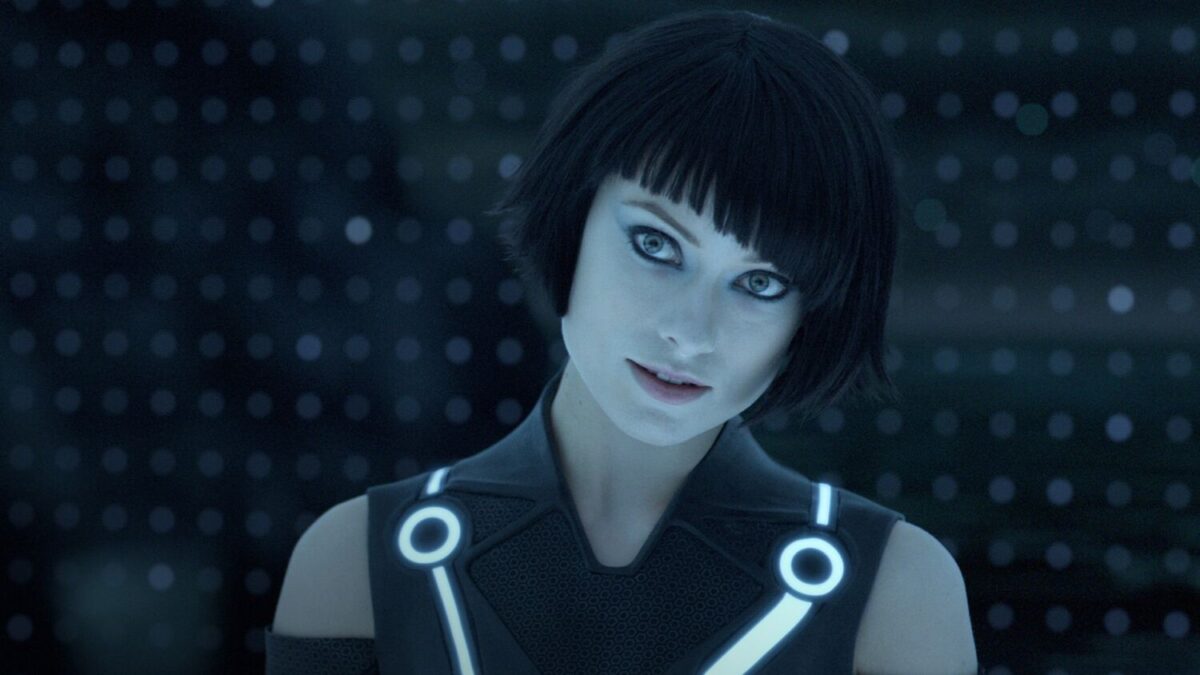
Kosinski also explained that Quorra’s narrative importance for Ascension lay in her ability to exist outside of the Grid, emphasising that “in her DNA itself, her being the first digital-human hybrid, there’s something in her being that allows objects from inside the Grid to exist in the real world and makes them permanent, so that was the idea”.
Wilde herself stated in a separate interview with Collider that she was thrilled by the challenge. “I think it’s an interesting concept. I’m fascinated by all the discussions of AI, and especially today and now, with virtual reality becoming something that’s like a personal device, I think it’s the time to tell this story,” she explained.
That story would have drawn from threads planted in Legacy and its companion short, Tron: The Next Day. Sam Flynn was poised to reshape ENCOM, aided by Alan Bradley (Bruce Boxleitner, The Orville), while Cillian Murphy’s (Oppenheimer) Edward Dillinger Jr., who was teased in Legacy in a tantalising cameo, was expected to emerge as a major antagonist. Boxleitner himself hinted at Murphy’s expanded role – “Let’s just say… Cillian Murphy doesn’t do cameos.”
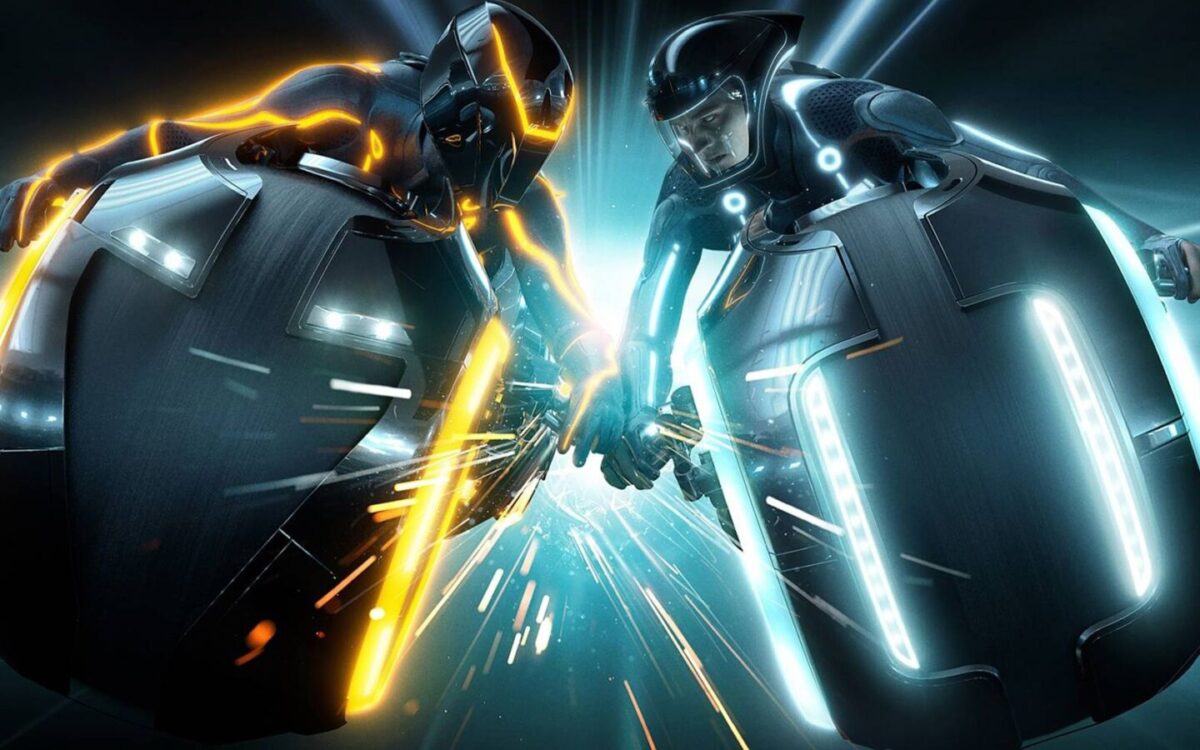
Meanwhile, Horowitz and Kitsis also cryptically teased Jeff Bridges’ (Iron Man) return, noting, “I would say the definition of life and death in the digital realm […] will be explored in the sequel!”
With Wilde, Hedlund, Boxleitner, Murphy, and Bridges all lined up, Ascension was meant to be a direct continuation of Legacy’s narrative, with Kosinski at the helm once again. The plan was to shoot in Vancouver in the fall of 2015, but just as production neared, disaster struck. Brad Bird’s Tomorrowland (2015), another effects-driven Disney sci-fi project with a hefty budget, underperformed at the box office.
Suddenly, a new chapter for Tron looked risky.
“When the next Tron was supposed to start — we were greenlit and ready to go — and then [Disney] had troubles with how Tomorrowland did,” Garrett Hedlund later recalled in an interview with MTV’s Happy Sad Confused podcast.
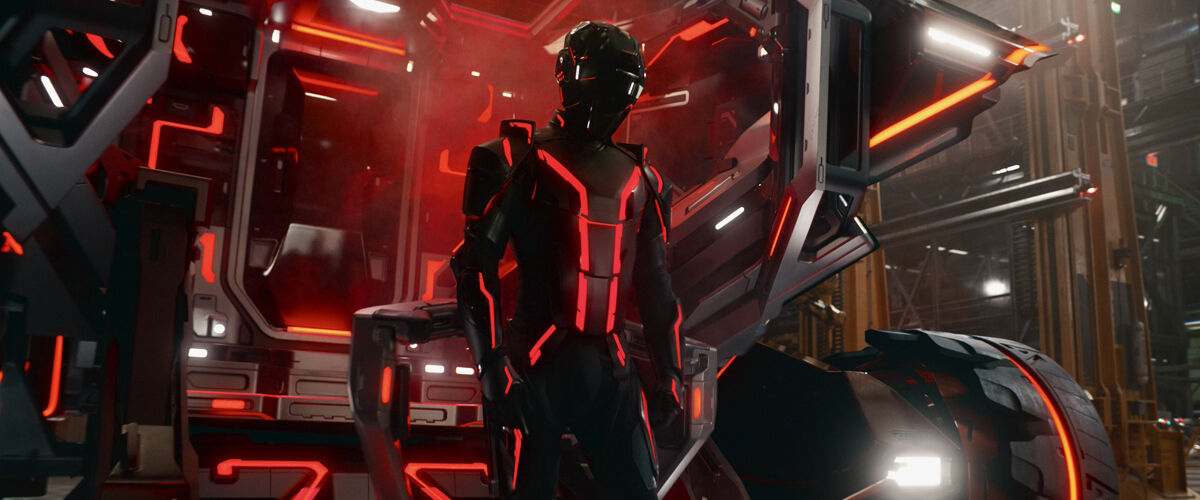
“And I think they asked them to give them like a hundred reasons why they should do [Tron 3].”
Within weeks, Disney shelved Ascension, redirecting resources to surer bets like Marvel and Star Wars. From there, Ascension lingered in limbo, but some of its DNA survived. By 2017, reports emerged that Disney was considering a new iteration built partly on Kosinski’s script, with Leto circling a lead role as Ares.
But unlike Ascension, which would have been defined by Quorra’s hybrid existence and Sam’s struggle to reshape ENCOM, this new project, titled Tron: Ares, placed Ares at the forefront of the narrative.
Years of false starts followed, including a brief stint with director Garth Davis (Lion, Mary Magdalene) in 2020. Finally, in 2023, Disney said Joachim Rønning (Pirates of the Caribbean: Dead Men Tell No Tales) would direct, with Jesse Wigutow and Jack Thorne scripting. Casting announcements trickled in: Evan Peters (Dahmer – Monster: The Jeffrey Dahmer Story), Greta Lee (Past Lives), Jodie Turner-Smith (Bad Monkey), and Gillian Anderson (The X-Files). Then, at D23 in 2024, the bombshell reveal – Nine Inch Nails’ Trent Reznor and Atticus Ross would score Tron: Ares, taking the baton from Daft Punk’s legendary work on Legacy.
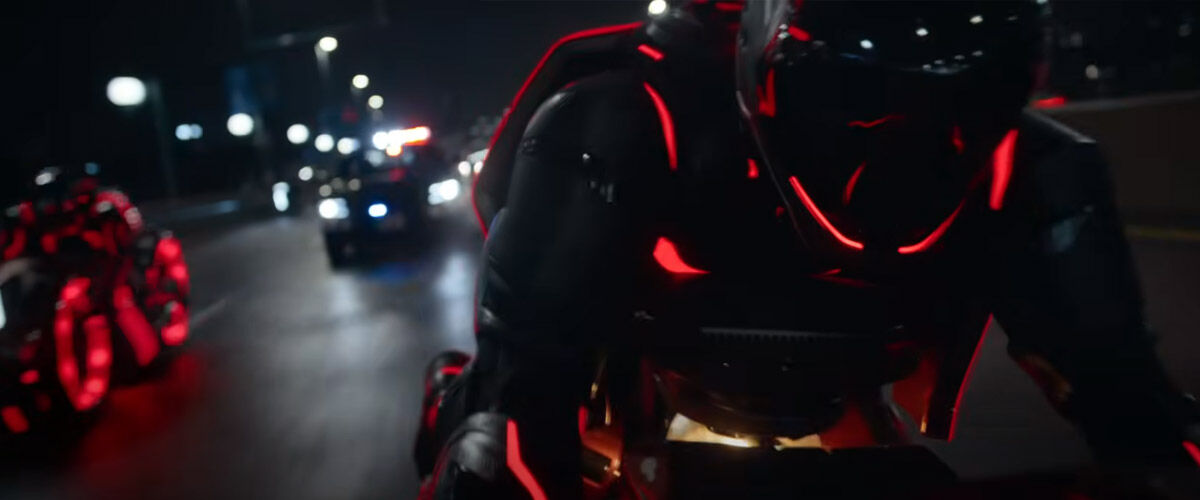
Yet the changes have been polarising. For many longtime fans, the pivot from Sam and Quorra to Ares didn’t sit well considering Legacy’s dangling threads. Why didn’t the team pick up the baton from Legacy and continue that story? And what happened to Sam and Quorra?
Boxleitner himself has voiced his concerns. Frustrated by the constant false starts, he told SlashFilm in 2015: “I’m done with it. I’ve moved on. I hate to say that, but it’s been too up and down for me. To have a Tron sequel without the iconic Tron all feels rather wrong.”
The trailer for Ares only deepened those questions. Bridges’ voice is heard briefly, but his character’s return is puzzling, given Kevin Flynn’s sacrifice at the end of Legacy. Peters’ Julian Dillinger appears to supplant Murphy’s Edward Dillinger Jr., while Lee seems to represent ENCOM’s leadership. Wilde, Hedlund, and Boxleitner are absent, leaving Leto as the lone focal point.
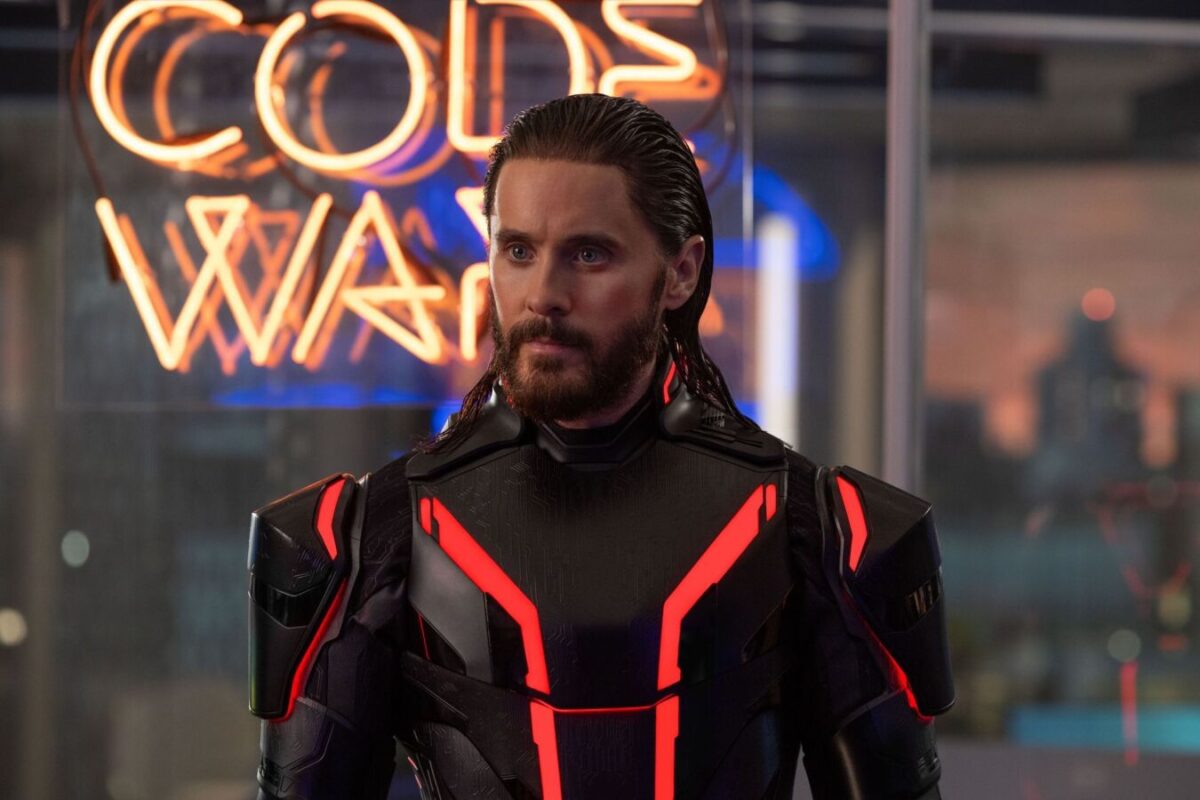
So where does that leave Tron? On one hand, Ares boasts pedigree talent, a potentially thrilling soundtrack, and the same unique world-bending narrative. On the other hand, it forgoes much of what Kosinski had constructed in Ascension, from Quorra’s unprecedented arc to Dillinger Jr.’s teased villainy.
Fifteen years after Legacy, Tron: Ares is finally set for release on 9 October 2025. Whether it can satisfy both new audiences and die-hard fans who still mourn Ascension remains to be seen. What’s certain is that in its long, turbulent journey from cult sequel to rebooted spectacle, the Tron franchise has illuminated both the possibilities and perils of visionary sci-fi under the glare of the Disney machine.
Conversation with Ting Wei is like chatting with a weird AI bot programmed only with One Piece lore and theories, sitcom quotes and other miscellaneous pop culture references. When he’s not sleeping, he’s highly likely reading manga. In fact, the only thing he reads more than manga is the Bible, and it’s honestly pretty close.

